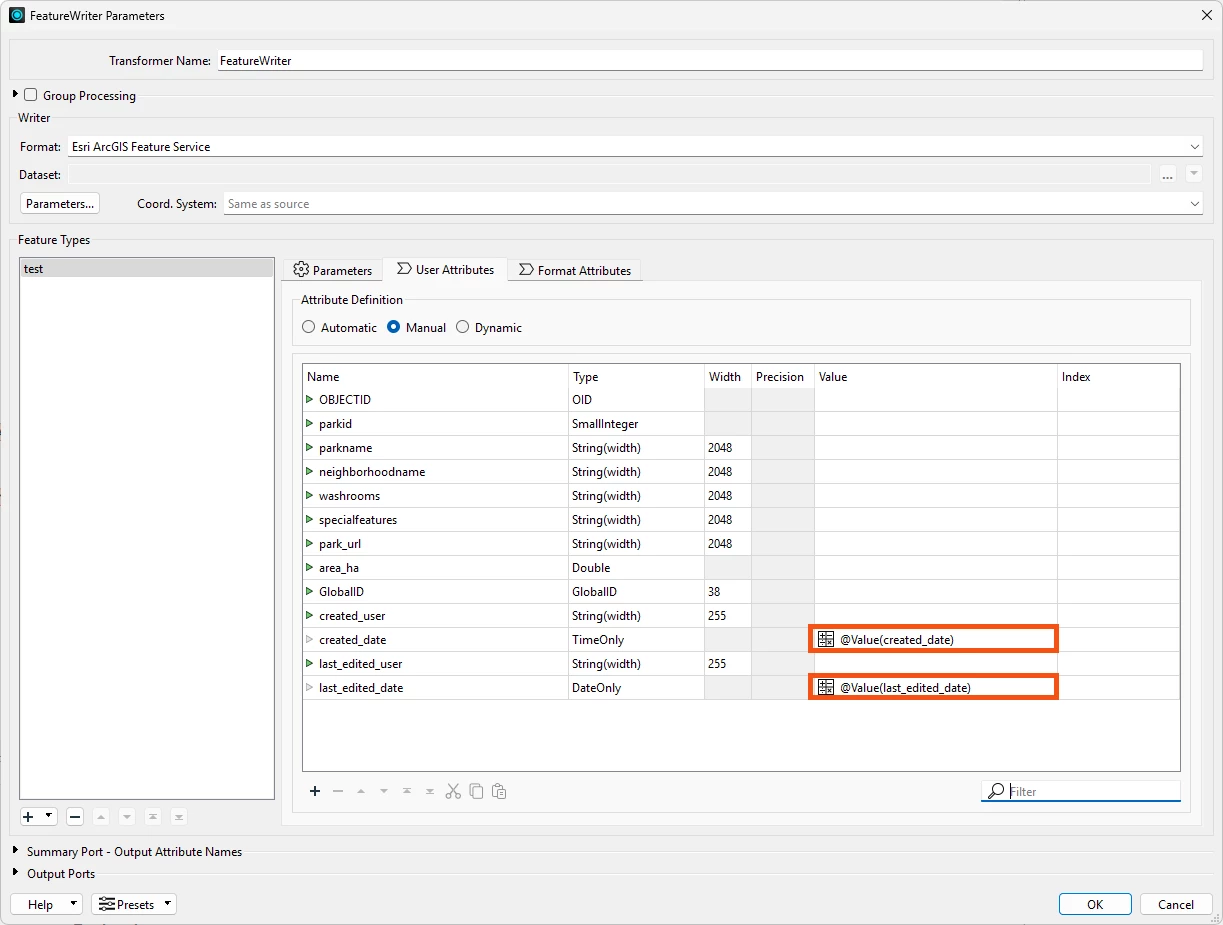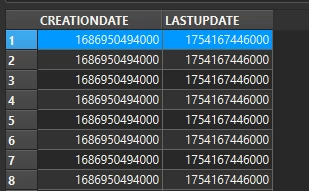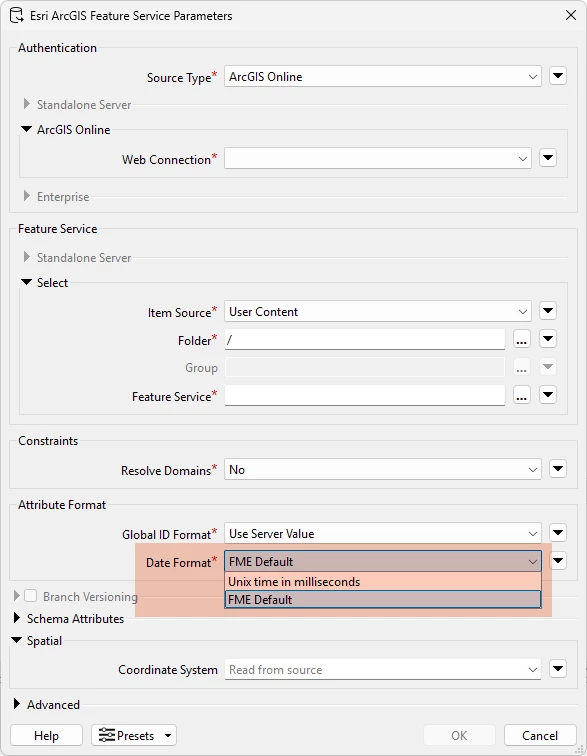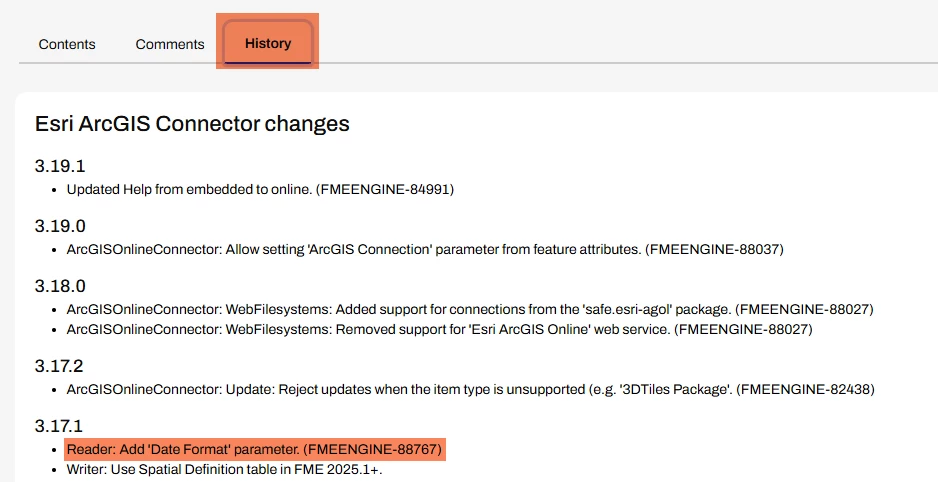Hi Folks,
For reading and writing ArcGIS Online feature services we are transitioning to the newer Esri ArcGIS Feature Service format in FME Flow 2024.2 from the soon to be deprecated Esri ArcGIS Online (AGOL) Feature Service (at least according to this article)
My problem is that now the reader seems to read dates as Epoch time in milliseconds! Obviously this can be worked around but it is quite painful to fix up the many workspaces we have which used the older reader and read dates as YYYYMMDD etc. especially when writing back to AGOL where the dates have to be back in YYYYMMDD.
Any thoughts?
Solved
Esri ArcGIS Feature Service - Reads Dates as Epoch Milliseconds
Best answer by TandraAtSafe
The Esri ArcGIS Connector has been updated on FME Hub to version 3.13.2 and resolves the issue above.
This post is closed to further activity.
It may be an old question, an answered question, an implemented idea, or a notification-only post.
Please check post dates before relying on any information in a question or answer.
For follow-up or related questions, please post a new question or idea.
If there is a genuine update to be made, please contact us and request that the post is reopened.
It may be an old question, an answered question, an implemented idea, or a notification-only post.
Please check post dates before relying on any information in a question or answer.
For follow-up or related questions, please post a new question or idea.
If there is a genuine update to be made, please contact us and request that the post is reopened.




























